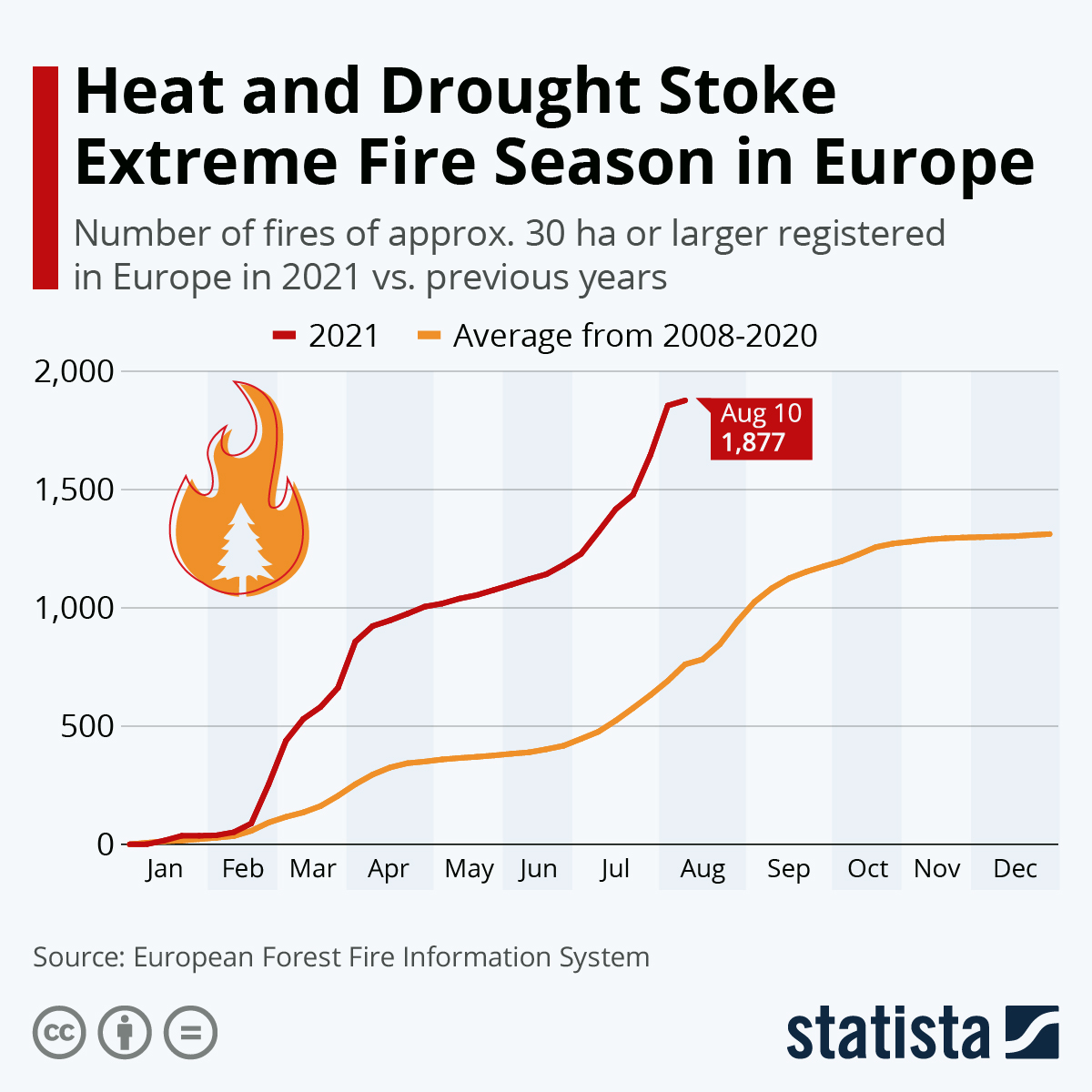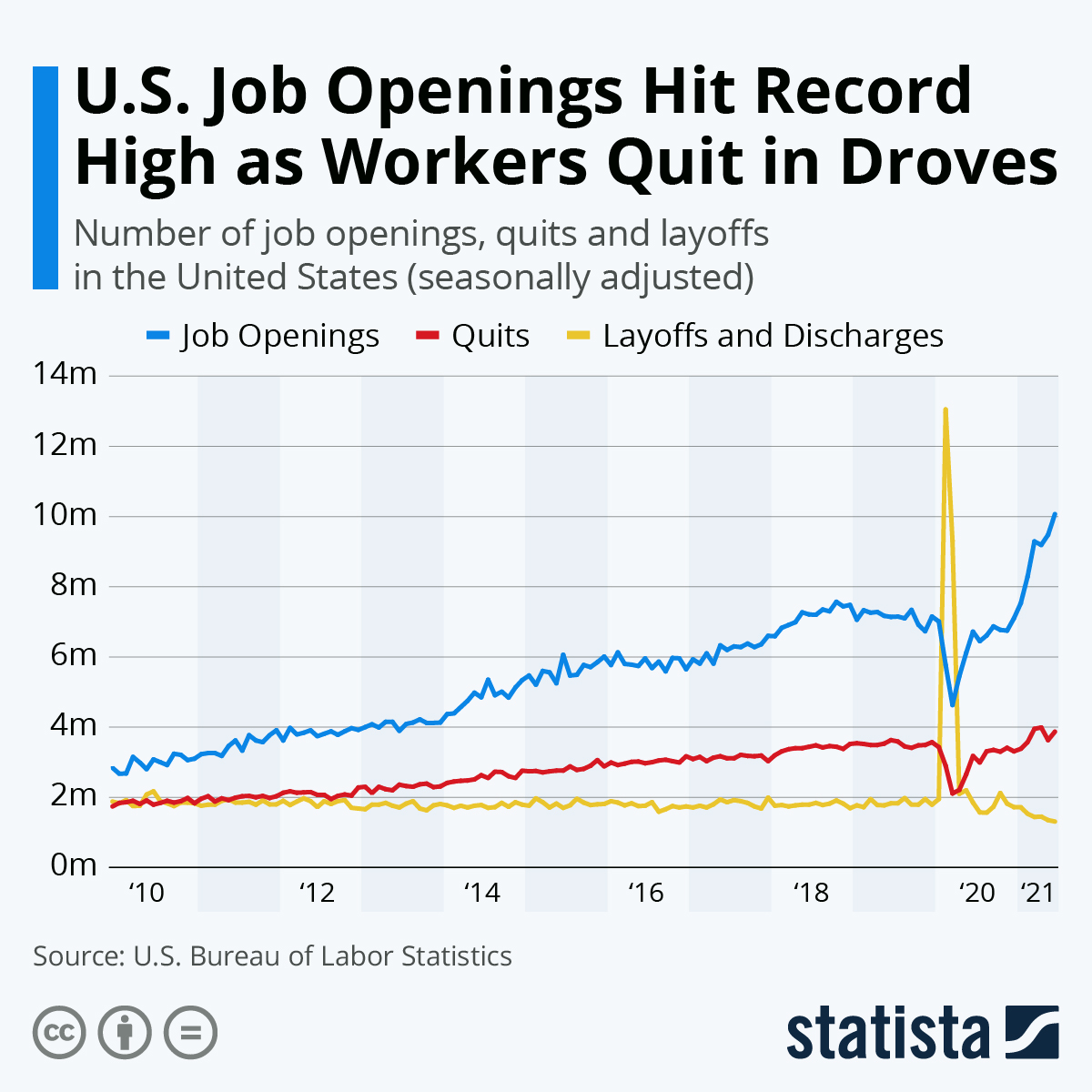COVID-19 Bulletin: August 11
More news relevant to the plastics industry:
Some sources linked are subscription services.
Supply
- Oil prices rebounded 2% Tuesday, reversing most of Monday’s losses on signs of rising fuel demand in the U.S. Crude futures were lower in mid-day trading, with WTI down 1.2% at $67.49/bbl and Brent down 1.2% at $69.78/bbl. Natural gas was 1.7% lower at $4.02/MMBtu.
- Saudi Aramco’s second-quarter profit rose nearly 300% from the same time last year to roughly $25.5 billion, beating expectations alongside a strong rebound in worldwide energy demand and oil prices.
- Analysts predict China’s new carbon market won’t be effective in reducing emissions until it attracts more participants and prices rise.
- China has installed the world’s largest offshore wind converter station, which will collect an expected 1.1 gigawatts of electricity from 269 deep-sea turbines and three substations.
- Our most recent list of force majeure and allocation announcements from suppliers is here.
Supply Chain
- Twenty-four U.S. states have issued heat warnings and advisories through the end of the week, affecting a total of 150 million people. Some 25 million people are expected to experience temperatures above 100°F.
- Temperatures in Portland, Oregon, could reach 104°F, as the state’s governor declared a state of emergency lasting until Friday.
- Boston declared a heat emergency, with temperatures expected to peak at 104°F between Wednesday and Friday.
- California’s Dixie Fire became the largest in state history, spreading to more than 488,000 acres. A second fire of concern in the state, the “River Fire,” rapidly spread to 1,400 acres with 0% containment Tuesday.
- Southern Oregon’s Bootleg Fire, formerly the nation’s largest active blaze, is now 98% contained after burning 413,765 acres.
- A busier than normal wildfire season has not been limited to the U.S. West:


- Tropical Storm Fred formed south of Puerto Rico with the potential to evolve into a hurricane as it heads toward Florida. The president urged citizens in hurricane-prone regions to get COVID-19 vaccinations in case they must evacuate their homes.
- Senate lawmakers passed the White House’s $1 trillion infrastructure bill Tuesday. The bill, which authorizes the highest spending on roads and infrastructure in decades, will head to the House of Representatives for further debate and voting.
- Volvo will temporarily halt production at a Swedish plant due to the global semiconductor shortage.
- The U.S. Postal Service will add surcharges on most packages shipped domestically between Oct. 3 and Dec. 26, a response to the rising cost of deliveries during peak season.
- An industry group led by the Consumer Brands Association has published new operating guidelines for contactless pickup and delivery at distribution centers, aiming to increase safety and visibility and reduce the amount of time drivers spend at the facilities.
- Canadian Pacific Railway raised its initial bid for Kansas City Southern by $2 billion to $31 billion, reigniting a months-long bidding war with Canadian National Railway to acquire the carrier.
- Tyson will raise restaurant and retail prices for its meat products on Sept. 5, the first of what could be several increases to keep up with rising costs.
- Truck-maker Xos inked a deal with FedEx to deliver 120 zero-emission, medium-duty electric trucks to 35 of the company’s freight operators across five states by early 2022.
- The first full-scale ocean plastic clean-up system has been attached to a Maersk vessel traveling between California and Hawaii. The technology collects floating plastic that is removed and later recycled, part of The Ocean Cleanup organization’s efforts to eliminate 90% of ocean plastic by 2040.
Markets
- The U.S. is averaging more than 124,000 new COVID-19 cases per day, more than double two weeks ago. The country reported 106,871 new infections and 816 virus deaths Tuesday.
- Fully vaccinated people make up just 0.1% of serious COVID-19 infections, new data shows.
- The CDC reaffirmed its stance that side effects from currently available COVID-19 vaccines are rare and do not outweigh the shots’ benefits.
- Hospitals nationwide are beginning to ration ICU beds amid multiple regional surges of COVID-19. Arkansas had just eight available beds statewide, while dozens of healthcare facilities ran out of room completely in Mississippi and Texas, where more than 10,000 virus patients were hospitalized Monday, a six-month high.
- More than 94,000 children were infected with COVID-19 in the U.S. last week, as health officials urge federal regulators to fast-track vaccine approval for those under age 12. In Florida, virus case counts are nearly four times higher compared to the same time last year, while roughly 1,000 students each in Mississippi and metro Atlanta were infected during the first week of school.
- Florida reported 15,322 new COVID-19 infections Monday, as the state’s hospitals requested 300 ventilators from the federal government to deal with a rise in virus patients.
- Oregon became the third state behind Hawaii and Louisiana to reimpose mask mandates regardless of a person’s COVID-19 vaccination status.
- Louisiana reported 93 COVID-19 deaths Tuesday, the most since January.
- California reported 5,358 COVID-19 hospitalizations Sunday, nearly double the amount from two weeks ago.
- Legal battles are set to ensue in Florida and Texas as more school districts impose mask mandates in direct defiance of governors’ orders. Kentucky, meanwhile, imposed a statewide mask mandate for returning students just days before classes resume.
- More U.S. students are filing federal lawsuits challenging COVID-19 vaccination mandates at their colleges and universities.
- Washington, D.C. will require all its public employees, including teachers, to either be vaccinated against COVID-19 or undergo weekly testing beginning Sept. 19.
- American Express pushed back its return-to-office date until at least Oct. 11 amid concerns of rising COVID-19 infections throughout the U.S.
- Citigroup will require employees returning to in-person work in some major U.S. cities to be vaccinated against COVID-19 when offices reopen Sept. 13.
- The White House is encouraging U.S. businesses to follow the lead of United Airlines and Kaiser Permanente in requiring COVID-19 vaccines for employees.
- The Consumer Price Index rose 0.5% in July as the annual inflation rate remained at 5.4% for the second straight month, a 20-year high.
- U.S. worker productivity rose by just 2.3% in the second quarter, slowing from a 4.3% rate in the first three months of the year.
- Just 13% of the U.S. workforce reported working from home in July, the lowest since the government began tracking data in May of last year.
- Trendsetter Google will cut pay for employees who choose to work from home permanently, a move recently followed by Facebook and Twitter.
- U.S. small business optimism fell in July, erasing June’s gains amid a continued labor shortage that has left roughly half of small firms with unfilled job openings on a seasonally adjusted basis.

- Holiday Inn’s parent company posted a $138 million profit for the first half of 2021, reversing last year’s $233 million loss for the same period as relaxed pandemic restrictions continue to boost the travel industry.
- Lenovo posted an almost 120% jump in first-quarter profit to $466 million, as company executives expect strong pandemic-induced demand for personal computers to extend to 2025.
- Rivian, an electric vehicle (EV) startup backed by Amazon, is eyeing opening a $5 billion factory near Fort Worth, Texas, with the capacity to produce 200,000 EVs per year.
- Boeing delivered 28 aircraft in July and had its sixth straight month of positive net orders, despite the suspension of 787 jet deliveries for a fourth month due to production defects.
- The SEC is developing a climate-disclosure regulation that could mandate every public company in the U.S. disclose its greenhouse gas emissions related to products and services.
International
- South Korea reported 2,021 COVID-19 infections Tuesday, a nearly 50% increase from the day before and its highest daily tally since the start of the pandemic.
- Australia’s second-biggest city of Melbourne will stay locked down for a second week after registering 20 new COVID-19 cases Monday.
- The U.K. has fully vaccinated more than 75% of its population against COVID-19, a milestone, as virus deaths in the country rose to 146 Tuesday, the most since March.
- China reported 181 new COVID-19 cases Monday, its highest daily total since a recent surge began three weeks ago. The nation’s latest round of virus outbreaks could threaten its economic recovery, with the government’s zero-tolerance policy prompting widespread lockdowns and canceled events.
- The Philippines imposed a two-week lockdown in the capital of Manila following a surge in COVID-19 infections. The restrictions could affect up to 13 million people.
- The highly contagious Delta variant of COVID-19 now accounts for 92% of infections in Thailand.
- Portugal will begin inoculating children as young as 12 with COVID-19 vaccines.
- India reported 28,204 new COVID-19 cases Tuesday, its lowest daily total since March.
- New Zealand officials are advising the nation’s prime minister not to reopen borders until early 2022, once the majority of the population has been vaccinated against COVID-19.
- Moderna is looking to build a new mRNA vaccine factory in Canada after reaching a tentative agreement with the country’s government, hoping to increase domestic supplies for its COVID-19 shot and further develop the company’s technology.
- The U.K.’s Premier League will begin randomly checking the COVID-19 status of fans, who will be expected to provide either proof of vaccination or a negative test within 48 hours of games.
- Global gross domestic product is expected to rise 1.8% in the third quarter from the previous three months, as economies across the world maintain resilience against the COVID-19 Delta variant. Meanwhile, heightened industry regulation in China has led to a surge of foreign investor inflows into the U.S. and India.
- Tesla sold 69% fewer cars in China from June to July, likely a result of increased government regulation and competition from domestic automakers. The trend aligned with a broader slowdown of auto sales nationwide, down 11.9% from the same month a year earlier to 1.9 million vehicles.
- July consumer spending in the U.K. rose 11.6% compared to the same period in 2019, as the nation’s economy furthers its rebound from COVID-19.
Our Operations
- With the recent widespread and rapid spike in COVID-19 infections and hospitalizations in the U.S., M. Holland is scaling back participation in this week’s MD&M West conference. Our first and foremost priority is protecting the health of our Mployees and business partners. While we will maintain a booth presence, we will be canceling meetings outside the conference.
- M. Holland’s 3D Printing group offers a rapid response alternative for producing selected parts where resin availability is tight during prevailing force majeure. For more information, email our 3D Printing team.
- Market Expertise: M. Holland offers a host of resources to clients, prospects and suppliers across nine strategic markets. To arrange a videoconference or meeting with any of our Market Managers, please visit our website.
Thank you,
M. Holland Company
We will provide further COVID-19 bulletins as circumstances dictate. For all COVID-19 updates and notices, please refer to the M. Holland website.